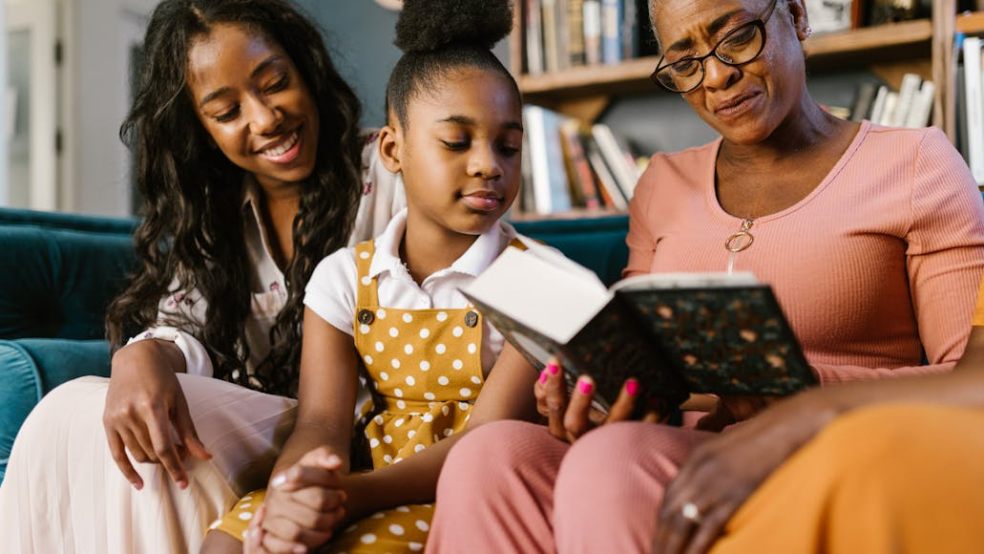
6 Kinds of Books You Should Read Together as a Family
In our increasingly digital world, the simple act of reading together as a family has become more precious than ever. Family reading time creates lasting bonds, sparks meaningful conversations, and instills a lifelong love of learning in children. Beyond the obvious benefits of improved literacy and vocabulary, shared reading experiences help families connect on deeper levels, creating traditions that children will carry into their own future families.
The key to successful family reading lies in choosing diverse types of books that engage every family member, regardless of age or reading level. When families read together regularly, they create a shared cultural experience that strengthens relationships and opens doors to discussions about values, dreams, and life lessons. The following six categories of books offer excellent starting points for building a rich family reading tradition that will serve your household for years to come.
Classic Literature and Timeless Tales
Classic literature forms the backbone of any well-rounded family reading program. These enduring stories have captivated readers for generations because they explore universal themes of human nature, morality, and the complexities of life. Works like "Charlotte's Web," "The Secret Garden," or "Treasure Island" offer rich narratives that appeal to both children and adults, creating opportunities for multi-layered discussions.
When reading classics together, families discover that these stories often reveal new meanings with each reading. A child might initially focus on the adventure aspects of a story, while parents appreciate the deeper psychological or social commentary. This creates natural opportunities for conversation about character development, historical context, and moral decision-making. Classic literature also provides families with a shared cultural literacy, giving them common reference points that strengthen their communication and understanding of each other.
The beauty of classic literature lies in its ability to bridge generational gaps. Parents can share stories they loved as children while introducing their own children to these same treasured narratives. This creates a beautiful cycle of shared experience that connects families across time and helps children understand their place in a larger literary tradition.
Devotional and Spiritual Books
Spiritual and devotional reading can profoundly strengthen family bonds while nurturing faith and moral development. For families who prioritize spiritual growth, incorporating prayer books, devotionals, and faith-based literature into their reading routine creates opportunities for meaningful discussions about values, purpose, and life's bigger questions.
Many families find that starting or ending their day with spiritual reading helps establish a peaceful rhythm and centers their household around shared beliefs. There are many online and local stores where you can find these kinds of books, but if you need recommendations, then you can check out any of the prayer books from PPH (Pentecostal Publishing House). These resources often include age-appropriate content that helps children understand complex spiritual concepts while providing parents with tools for guiding meaningful conversations about faith and character.
Educational and Science Books
Science and educational books transform learning into an exciting family adventure. From books about dinosaurs and space exploration to volumes about the human body and environmental conservation, educational reading expands everyone's knowledge while satisfying natural curiosity about the world around us.
The key to successful educational reading is choosing books that match your family's interests and reading levels. Picture books about scientific concepts work well for younger children, while older kids might enjoy more detailed explorations of topics like astronomy, biology, or history. Parents often find that they learn alongside their children, discovering fascinating facts and developing new interests they never knew they had.
Adventure and Fantasy Stories
Adventure and fantasy books transport families to magical worlds where imagination reigns supreme. These stories captivate readers with exciting plots, memorable characters, and fantastical settings that spark creativity and wonder. Series like "Harry Potter," "The Chronicles of Narnia," or "The Hobbit" provide weeks or months of shared reading enjoyment.
Fantasy literature offers unique benefits for family reading. These stories often explore complex themes of good versus evil, friendship, courage, and personal growth within engaging, accessible narratives. Children learn to think symbolically while adults appreciate the sophisticated storytelling and deeper meanings woven throughout these tales.
Adventure stories also provide natural opportunities for discussing problem-solving, teamwork, and perseverance. As families follow characters through challenges and triumphs, they can talk about how the lessons learned in fictional worlds apply to real-life situations. These discussions help children develop critical thinking skills while reinforcing important values like loyalty, bravery, and the importance of standing up for what's right.
Biography and Historical Fiction
Biographies and historical fiction introduce families to inspiring individuals and important historical events while making the past come alive. These books help children understand that history is composed of real people who faced real challenges, made difficult decisions, and shaped the world we live in today.
Reading about historical figures like Martin Luther King Jr., Marie Curie, or Abraham Lincoln provides families with role models and examples of courage, perseverance, and dedication. These stories demonstrate that ordinary people can accomplish extraordinary things, inspiring children to pursue their own dreams and make positive contributions to society.
Historical fiction offers another powerful way to explore the past. Books set during different time periods help families understand how people lived, what challenges they faced, and how societies have evolved over time. These stories develop empathy by helping readers understand different perspectives and life experiences while providing context for current events and social issues.
Contemporary Fiction and Realistic Stories
Contemporary fiction that deals with real-life situations helps families navigate modern challenges while exploring themes relevant to today's world. These books address topics like friendship, family changes, school challenges, and growing up in ways that resonate with children's actual experiences.
Realistic fiction provides safe spaces for discussing difficult topics that families might encounter. Books that deal with subjects like divorce, moving to new places, dealing with bullying, or facing illness give parents and children vocabulary and frameworks for talking about challenging situations. These stories validate children's feelings while providing hope and coping strategies.
Contemporary stories also reflect the diversity of modern society, exposing children to different family structures, cultures, and ways of life. This exposure builds empathy and understanding while helping children appreciate both differences and similarities among people. These books prepare children to thrive in an increasingly connected and diverse world.
Conclusion
Family reading time represents one of the most valuable investments parents can make in their children's future. By incorporating these six types of books into regular reading routines, families create rich, meaningful experiences that strengthen relationships while fostering intellectual and emotional growth. The conversations sparked by shared reading often become the foundation for lifelong family connections and help children develop into thoughtful, compassionate, and well-read adults who will carry these traditions forward to future generations.













